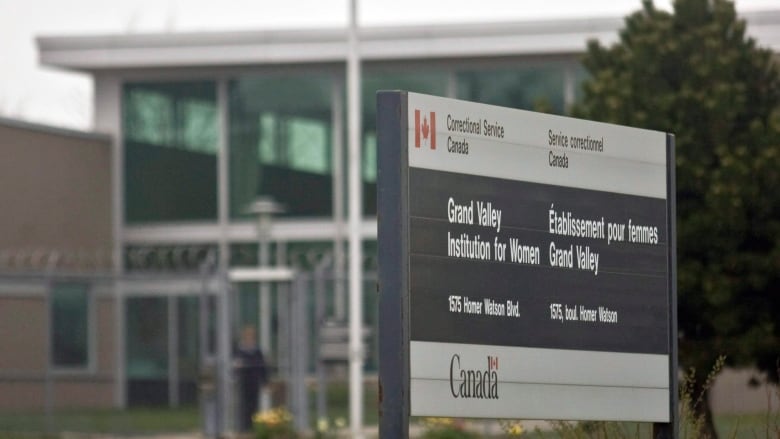Pandemic management questioned as Grand Valley Institution sees new COVID-19 cases
Lockdown measures 'really hard for their mental health,' advocate says

Women at Kitchener's Grand Valley Institution are being confined to their living areas for most of the day and cannot have visitors after three staff members tested positive for COVID-19,the executive director ofthe Canadian Association of Elizabeth Fry Societies says.
Those restrictions areconcerning, Emilie Coyle says, addingthe way the COVID-19 pandemic has been managed in federal prisons "has been putting people at greater risk both to their physical health and mental health."
Coylesaid the facility has been in lockdown since last Thursday and inmates can't leave their living area more than 15 minutes a day.
"It's very, very restrictive," she said. "It's been really hard for their mental health."
Earlier in the pandemic, eight inmates at Grand Valleytested positive for COVID-19. There are currently no positive cases among women serving prison sentences at Grand Valley Institutionas of Thursday.
Coyle says the current restrictions comeon the heels of a previous lockdown a week earlier due to an investigation into possible contraband in the facility.
Correctional Service Canada (CSC) said the prison is now operating on a "modified routine," which means movements within the facility are limited to reduce potential spread of the virus and ensure physical distancing.The prison has also suspended in-person visits to ensure safety and focus on the investigation into the source of spread.
Decline in inmate population
Coyle said the organization and other advocacy groups have been calling on the government to depopulate Canadian prisons in order to make room for physical distancing. One recommendation suggested pushing up parole dates for those close to parole.
She says they had hoped between the first and second wave, during the summer, that would have happened.
"We haven't seen that," she said.
CSC said in a statement to CBC News that since March 2020, the federal custody population has declined by 1,317 inmates, of which 68 are women. That represents a 9.8 per cent decline in the women inmate population, according to CSC.
"This reduction is the result of fewer admissions from the provinces and territories coupled with continued releases into the community. As of November 29, 2020, there are 12,641 inmates in our custody," CSC said in a statement.
CSCsaid it continues to work with the Parole Board of Canada to process eligibleinmates for release.












_(720p).jpg)


 OFFICIAL HD MUSIC VIDEO.jpg)
.jpg)



























































































